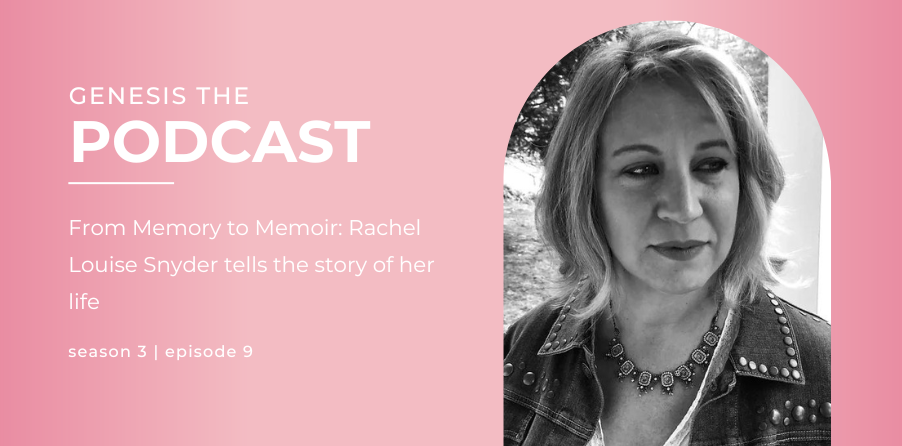Genesis The Podcast: From Memory to Memoir

From Memory to Memoir: Rachel Louise Snyder tells the story of her life
In the realm of storytelling, few narratives are as gripping and transformative as those that stem from personal trials and the quest for redemption. The latest episode of our podcast features Rachel Louise Snyder, who gives a candid and raw account of her life’s journey as depicted in her new memoir, “Women We Buried, Women We Burned.” This episode isn’t just a recounting of the darkness cast by abuse; it is also an exploration of the ensuing light of understanding and the path to healing.
Snyder’s memoir lays bare the impact of personal trauma, reflecting on the complexity of love intertwined with abuse. The dichotomy presented in such relationships often remains obscured from the public eye, but Snyder’s account provides a glimpse into the concealed turmoil that survivors face. Her narrative goes beyond her experiences, delving into the systemic challenges victims encounter, from law enforcement responses to judicial proceedings.
This episode offers listeners a profound insight into the effects of childhood trauma on identity and self-perception. Snyder’s candid discussion of the death of her mother and her reckoning with her father’s abusive past exemplifies the deep-seated scars that early-life experiences can leave. However, the conversation doesn’t dwell solely on the sorrowful aspects; it is also a testament to Snyder’s evolution and rediscovery. Her early rebellious years and transformative experiences in the cultural landscape of Cambodia highlight the resilience of the human spirit.
The discussion ventures into topics of religion and culture, particularly the profound impact Snyder’s experiences in Cambodia had on her understanding of her identity. The immersion in Kahmar culture and Buddhism offered her peace and belonging, contrasting with the religious impositions of her childhood. Cultural insights into practices surrounding death and mourning in Cambodia provided Snyder with a connection to the departed, including her mother, thereby weaving a thread of continuity through her life story.
Snyder’s journey takes unexpected turns, such as her stint as a music booking agent during the vibrant ’80s metal scene. The episode shares the confidence and sense of purpose she gained from this experience, underscoring the idea that life’s path is rarely linear. Each twist and turn can become a foundational experience, shaping one’s character and outlook on life.
As an advocate for domestic violence survivors, Snyder illuminates the importance of community support and the vital services provided by organizations like Genesis Women’s Shelter & Support. Her advocacy underscores the need for comprehensive support systems that can offer solace and assistance to those in dire situations.
Snyder provides perspective on pivotal life decisions and the influence of chance encounters, illustrating how encouragement and opportunities can lead to life-altering paths. Overcoming fear and embracing life’s offerings are central themes, as are the absurdity of book banning and the necessity of accessible sex education. Snyder’s work, “No Visible Bruises,” is referenced as a means of introducing teenagers to mature content, preparing them for adult issues they may face.
Snyder’s episode is a journey of sorrow, strength, and support, showcasing the human capacity for endurance and transformation. It serves as both an act of courage and a beacon for change, inspiring listeners with a message of hope that persists amidst adversity.
To listen to this episode of Genesis The Podcast, click here.
